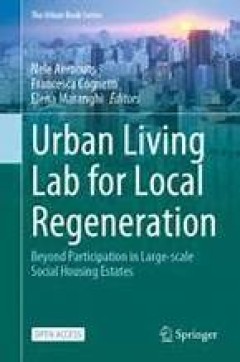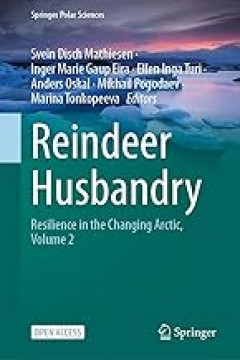Filter by

Martial Culture and Historical Martial Arts in Europe and Asia
This open access book is the first publication to provide a comparative framework for the study of martial culture and historical martial arts in Europe and Asia, in particular in Italy and China. Due to the interdisciplinary nature of martial studies, contributors to this volume include historians, archeologists, art historians, scholars of fencing literature, metallurgists, as well as contemp…
- Edition
- 1
- ISBN/ISSN
- 978-981-19-2037-0
- Collation
- -
- Series Title
- Martial Studies
- Call Number
- XXII, 381
Unsettling Responsibility in Science Education: Indigenous Science, Deconstru…
This open access book engages with the response-ability of science education to Indigenous ways-of-living-with-Nature. Higgins deconstructs the ways in which the structures of science education—its concepts, categories, policies, and practices—contribute to the exclusion (or problematic inclusion) of Indigenous science while also shaping its ability respond. Herein, he undertakes an unsettl…
- Edition
- -
- ISBN/ISSN
- 978-3-030-61298-6
- Collation
- -
- Series Title
- -
- Call Number
- -

The State of Peacebuilding in Africa: Lessons Learned for Policymakers and Pr…
This open access book on the state of peacebuilding in Africa brings together the work of distinguished scholars, practitioners, and decision makers to reflect on key experiences and lessons learned in peacebuilding in Africa over the past half century. The core themes addressed by the contributors include conflict prevention, mediation, and management; post-conflict reconstruction, justice and…
- Edition
- -
- ISBN/ISSN
- 978-3-030-46635-0
- Collation
- -
- Series Title
- -
- Call Number
- -

Brain and Human Body Modeling 2020: Computational Human Models Presented at E…
This open access book describes modern applications of computational human modeling in an effort to advance neurology, cancer treatment, and radio-frequency studies including regulatory, safety, and wireless communication fields. Readers working on any application that may expose human subjects to electromagnetic radiation will benefit from this book’s coverage of the latest models and techn…
- Edition
- -
- ISBN/ISSN
- -
- Collation
- -
- Series Title
- -
- Call Number
- -

Urban and Regional Cooperation and Development
This is an open access book. This book, first of all, introduces the new unveiled Guangdong-Macao Intensive Cooperation Zone with details as a special mode of the regional collaborative development that is committed to be mutually beneficial to both sides with different political and economic systems. China's central authorities have recently issued a masterplan for constructing the Guangdong-M…
- Edition
- 1
- ISBN/ISSN
- 978-981-19-8061-9
- Collation
- -
- Series Title
- SpringerBriefs in Geography
- Call Number
- IX, 94

Urban Living Lab for Local Regeneration
This open access book provides an integrated overview of the challenges and resources of large-scale social housing estates in Europe and outlines possible interdisciplinary approaches and tools to promote their regeneration. It especially focuses on the tool of urban living labs, as promising in promoting new and more effective local governance and in including the different actors into the pl…
- Edition
- 1
- ISBN/ISSN
- 978-3-031-19748-2
- Collation
- -
- Series Title
- The Urban Book Series
- Call Number
- IX, 205

Mobilities on the Margins
This open access book examines places on the margins and the dynamics through which a marginal position of a place is created. Specifically, it explores how places, mostly in sparsely populated areas, often perceived as immobile and frozen in time, come into being and develop through interference of everyday mobilities and creative practices that cut across the spheres of culture and nature as …
- Edition
- -
- ISBN/ISSN
- 978-3-031-41344-5
- Collation
- XVIII, 269
- Series Title
- -
- Call Number
- -

Data Science and Social Research
This edited volume lays the groundwork for Social Data Science, addressing epistemological issues, methods, technologies, software and applications of data science in the social sciences. It presents data science techniques for the collection, analysis and use of both online and offline new (big) data in social research and related applications. Among others, the individual contributions cover …
- Edition
- 1
- ISBN/ISSN
- 978-3-319-55477-8
- Collation
- -
- Series Title
- Studies in Classification, Data Analysis, and Knowledge Organization
- Call Number
- IX, 300

Reindeer Husbandry
This open access book focuses on climate change, indigenous reindeer husbandry and the underlying concept of connecting the traditional knowledge of indigenous reindeer herders in the Arctic with the latest research findings of the world’s leading academics. The Arctic and sub-Arctic environment, climate and biodiversity are changing in ways unprecedented in the long histories of the nor…
- Edition
- -
- ISBN/ISSN
- 978-3-031-42289-8
- Collation
- XXXVI, 217
- Series Title
- -
- Call Number
- -

Researching with Proximity
This open access book presents a series of speculative, experimental modes of inquiry in the present times of environmental damage that have come to be known as the age of the Anthropocene. Throughout the book authors develop more nuanced ways of engaging with the environmentally vulnerable Arctic. They counter distancing, exoticising, and even apocalyptic imaginaries of the Arctic by staying p…
- Edition
- -
- ISBN/ISSN
- 978-3-031-39500-0
- Collation
- XIX, 215
- Series Title
- -
- Call Number
- -
 Computer Science, Information & General Works
Computer Science, Information & General Works  Philosophy & Psychology
Philosophy & Psychology  Religion
Religion  Social Sciences
Social Sciences  Language
Language  Pure Science
Pure Science  Applied Sciences
Applied Sciences  Art & Recreation
Art & Recreation  Literature
Literature  History & Geography
History & Geography